Laser tag is one of the best ways to get adrenaline pumping through your veins!
Signing up for your first laser tag game can be scary, though…
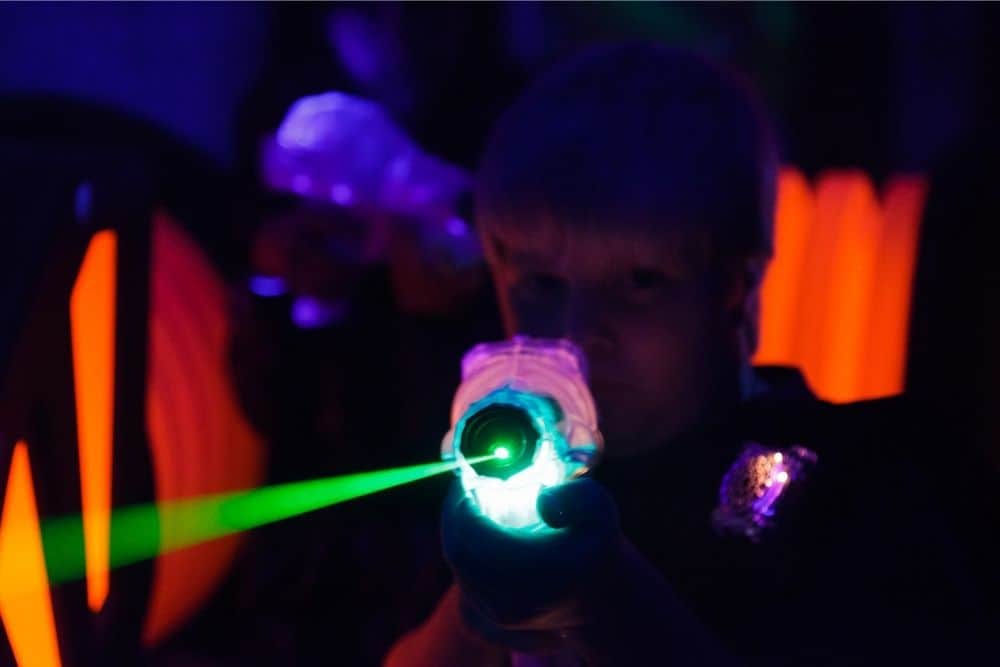
Some questions might be swirling in your head: “Is laser tag safe?” or “Can I go blind from laser tag?”
In this article, let’s shed some light on some of your most troubling:
- Is laser tag dangerous to the eyes?
- What happens when you shine a laser on your eye?
- How do you know if you have eye damage from a laser?
- What happens when you accidentally look at a laser?
- Does laser damage eyes instantly?
Laser tag arenas usually use infrared lasers. They are 100% safe and don’t cause any damage to the eyes, let alone make you blind. However, some laser tag centers may use laser pointers or toys that aren’t FDA-approved.
Powerful laser toys and guns unregulated by the FDA can cause your vision to deteriorate when shone directly on the eye or any reflective surface.
Aside from learning about the effects of lasers on your vision, let’s get into the details of how you can have a safe and fun game!
Let’s get started!
Contents
Is laser tag dangerous to the eyes?

The main concern most players have with laser tag is the risk of eye damage. Although the game is called “laser” tag, you’ll be surprised that it doesn’t use any kind of laser at all!
Most laser tag centers use harmless infrared light, which is low frequency and low intensity. They work just like your standard television remote control!
However, shining any sort of light on your eye can cause flash blindness. Shining a light for extended periods of time can cause gradual damage in the long run.
Some laser tag arenas use real lasers. In such a case, make sure that the center only uses FDA-approved laser guns.
The FDA warns against the use of laser toys and guns, which can cause vision loss and eye damage. FDA-regulated lasers have a power limit that is a tenth of the threshold of damage.
Lasers are classified into types according to their milliwatt (mW) power. Type I lasers have a power output of 0.4 mW and don’t do any damage to the retinas at all.
However, most laser pointers are either type II or type IIIa and have a power output range of 1 to 5 mW.
What happens when you shine a laser on your eye?
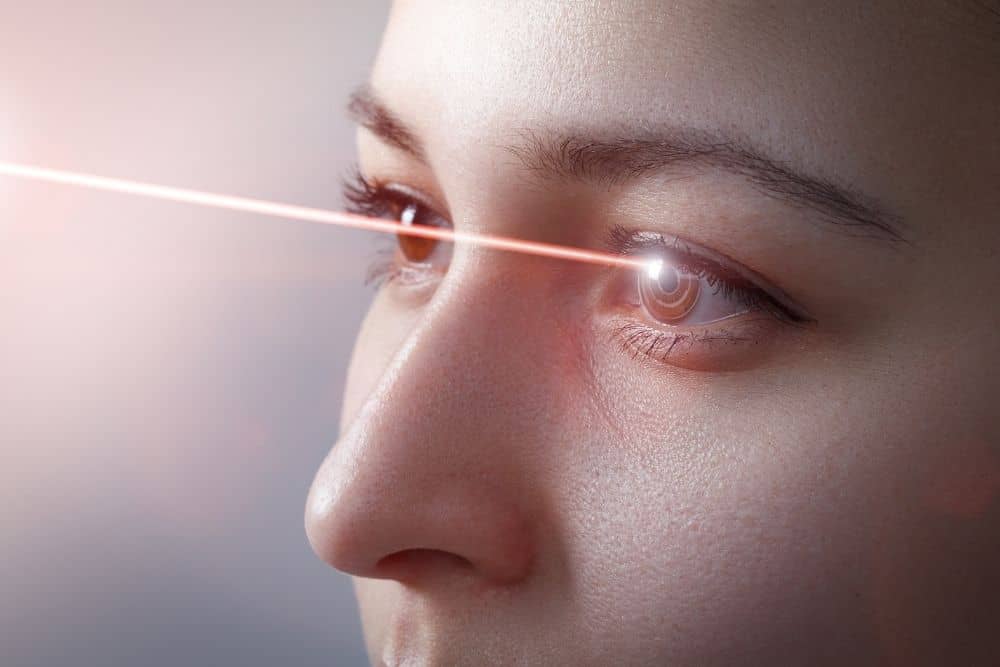
Here’s what happens: whenever a bright light is shined on your eye, you will blink automatically in less than 0.2 seconds. This is called the blink reflex.
While it isn’t likely to happen, laser toys and pointers can still cause significant damage to the eye.
Shining a beam directly into the eye can cause damage, especially if the laser power is more than five milliwatts.
Flash blindness can occur if your eye is exposed to sudden bright light.
If a laser burn occurs on your fovea, most fine vision capabilities, such as reading and working, will be lost.
Continuous exposure to a laser pointer may cause irreparable retinal damage. While it’s almost impossible to shine a bright light on the eye for more than ten seconds, continuous exposure to laser beams between one to 5 mW of power can lead to permanent blindness.
How do you know if you have eye damage from a laser?
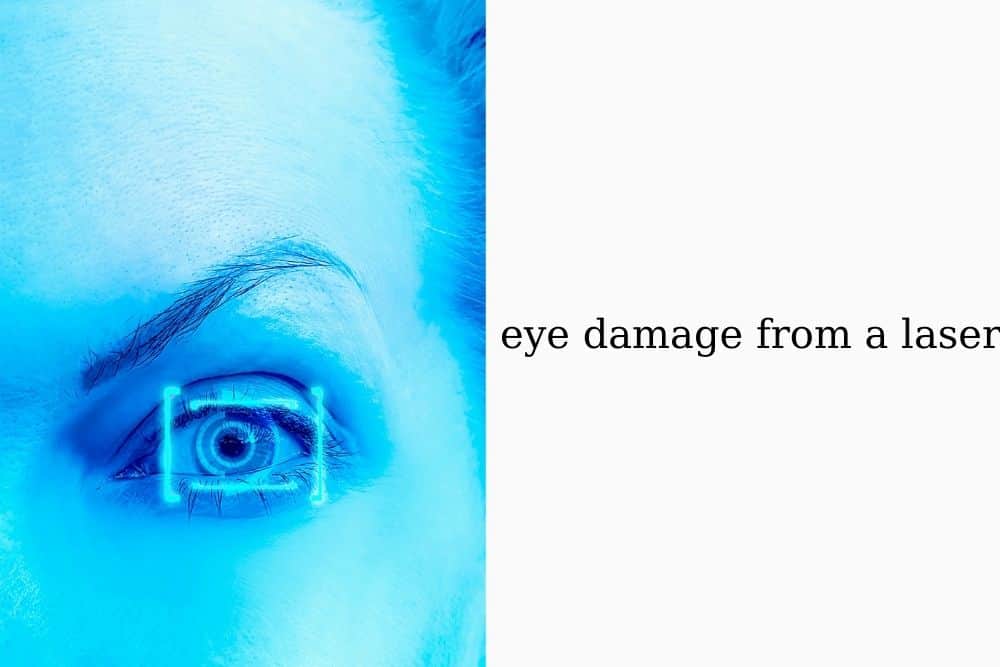
The symptoms of flash blindness include mild to severe pain, light sensitivity, and blurred vision. Headaches, watery and red eyes, and eye floaters are also common symptoms. While you’ll regain your vision in a few seconds, it’s disorienting and can result in an accident.
Most laser injuries are classified as “blindness,” but only some visual ability is lost in reality.
Range of loss of vision is classified as:
- Near-normal vision
- Low vision: minimal to severe vision loss, which can be improved with vision enhancement devices and aids
- Blindness: total loss of vision and reliance on vision substitution skills; classified between profound, near-total, and total vision loss
What happens when you accidentally look at a laser?
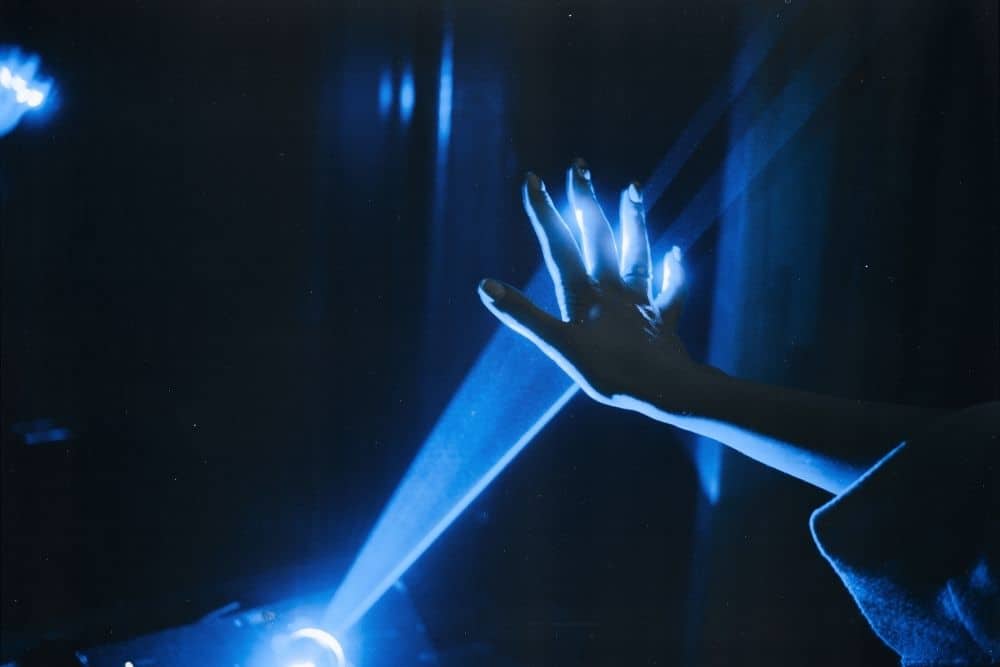
Accidentally looking at a laser pointing isn’t likely to cause any damage.
In the first place, shining a direct light on the eye is almost impossible. The eye makes a lot of tiny movements that make continuous exposure difficult.
Keep this in mind: repeated laser burns on the fovea will lead to blindness.
Be careful not to shine a laser directly into a person’s face. It will also be best to avoid any reflective or shiny surfaces such as mirrors and metals.
Does laser damage eyes instantly?
Eye injuries from laser light don’t often cause instant pain. Vision will start to deteriorate slowly, and it can go unnoticed for a few days.
Lasers with less than five milliwatts of power don’t cause immediate damage because your blink reflex will kick in right away. However, lasers with more than five milliwatts of output power can cause immediate damage even after brief exposure.
Laser Injuries: What factors affect eye damage?
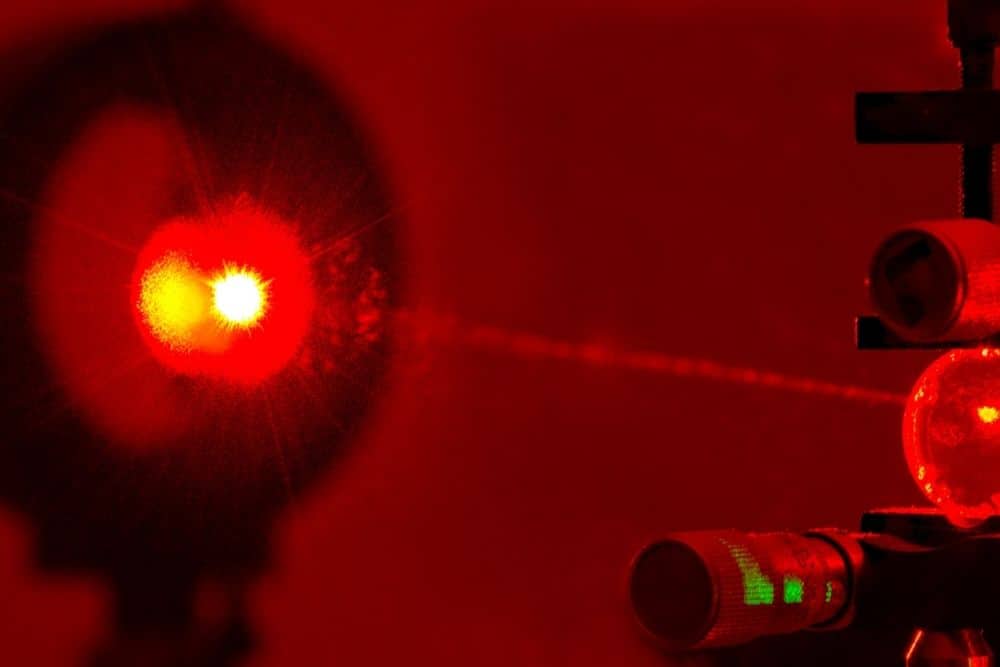
There are several considerations to determine the degree of eye damage from laser light.
These include:
- Laser beam power
- Beam spread or divergence
- Distance of eye from the beam spread
- Duration of exposure
- Color or wavelength of exposure
- Eye structure the laser was directed
- Movement of the laser beam across the eye
- Location of the laser on the eye (central or peripheral vision)
- If the laser was continuously applied or in bursts
We get it, these are pretty technical facts! To err on the side of caution, whenever you visit a laser arena or make a laser gun purchase online, always check Laser Class and FDA status.
Conclusion
Most laser tag centers use harmless infrared lasers that are 100% safe from eye damage or vision loss. Other laser tag systems may use real FDA-regulated laser guns or pointers with low output power.
However, keep in mind that shining any bright light on your eye for long periods will result in eye damage. Eye injuries will most especially depend on the power of the laser beam and the length of exposure. Repeated flash burns on your fovea can also lead to blindness.
We hope this article helped ease your anxieties about laser tag!
To be extra safe, get in touch with your laser tag center to make sure they only use infrared guns. When buying laser tag gun gear online, ensure that they’re 100% FDA approved and are only Type I laser.